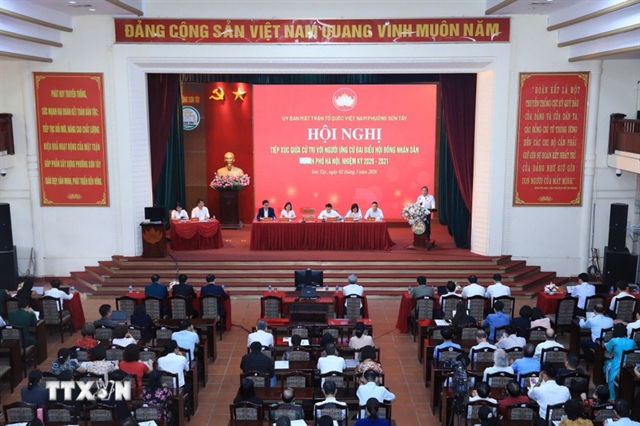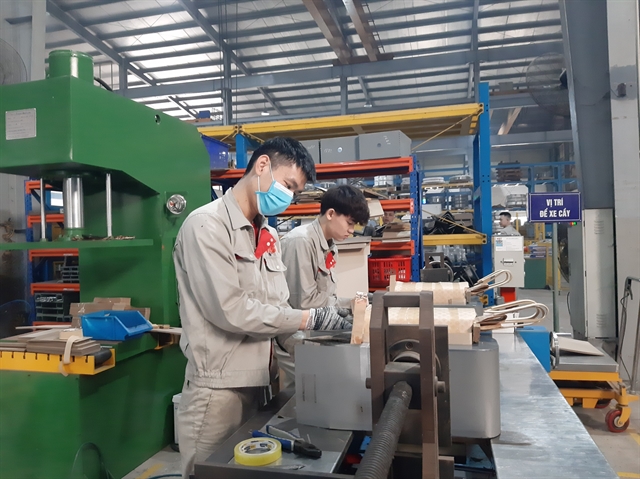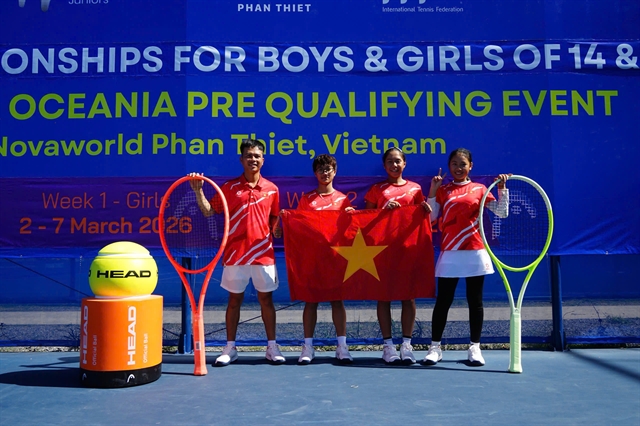 Economy
Economy

 |
| Staff at MBT Electrical Equipment JSC. — VNS File Photo |
HÀ NỘI — The scale and capacity of Vietnamese supporting industry enterprises are still limited.
Data from the General Statistics Office of Việt Nam showed that the number of supporting industry enterprises nationwide currently stands at about 5,000.
Supporting industry products are sufficiently supplied domestically and exported to several markets around the world. The main export markets are Korea, Japan, China, and the US.
Currently, Vietnamese supporting industry enterprises are conscious of improving and enhancing their capabilities through training for management teams and by integrating scientific and technical advances into their production process.
Data from the Ministry of Industry and Trade (MoIT) showed that, to date, the number of businesses participating as tier-1 vendors for multinational corporations is about 100 enterprises, while tier-2 and tier-3 vendors number about 700 businesses.
Specifically, in the electronics field, Samsung currently has about 50 businesses as tier-1 vendors and about 170 businesses as tier-2 vendors.
In the field of mechanical engineering - automobiles, there are currently about 12 businesses serving as tier-1 providers to Toyota.
Moreover, the localisation rate of our supporting industry products has improved significantly in recent years.
In the fields of textiles, garments and footwear, the localisation rate stands at about 45 - 50 per cent; mechanical manufacturing is at 15 - 20 per cent; and the automobile manufacturing and assembly sector is between 5 - 20 per cent. Notably, for some vehicle products such as trucks and passenger cars, the localisation rate is even higher.
At a recent workshop on the supporting industry, Phạm Tuấn Anh, Deputy Director of the MoIT’s Industry Agency, commented that, despite the achieved results, the supporting industry still faced certain limitations.
Supporting industry enterprises currently remained in the very low value-added segment of the supply chain, he said.
Moreover, the capacity of supporting industry enterprises was still limited, and the connection between supporting industry enterprises and FDI enterprises was not strong, he added.
Additionally, according to Nguyễn Vân, Deputy Director of the Hà Nội Supporting Industry Association, domestic businesses, especially small and medium-sized enterprises lacking capital and technology, also require support in trade promotion and sales.
Consequently, the competitiveness of products is not high, many Vietnamese supporting industry products are priced high, and do not meet quality and technical compatibility requirements.
State and local management agencies, alongside industry associations, need to intervene more robustly to support businesses, using policy tools and mechanisms, to assist businesses in improving productivity and quality, thereby narrowing the gap between the requirements of multinational corporations and the capabilities of domestic manufacturing enterprises.
Regarding policy issues, Anh mentioned that the MoIT has been assigned by the Government to amend Decree No 111/2015/NĐ-CP on supporting industry development. However, the revision process has encountered many challenges due to varying perspectives of ministries and branches on business support issues. — VNS




